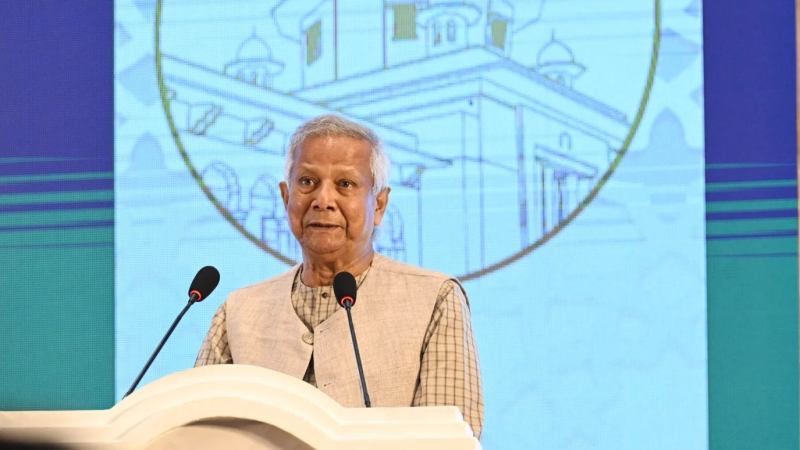- Puppet show enchants Children as Boi Mela comes alive on day 2 |
- DSCC Admin Salam’s drive to make South Dhaka a ‘clean city’ |
- 274 Taliban Dead, 55 Pakistan Troops Killed |
- Now 'open war' with Afghanistan after latest strikes |
- Dhaka's air quality fourth worst in world on Friday morning |
Govt Committed to Judicial Independence: Chief Adviser

Chief Adviser Professor Muhammad Yunus on Sunday reaffirmed the interim government's commitment to ensuring an independent and efficient judiciary in Bangladesh, emphasising that meaningful reforms are essential to uphold justice and public confidence.
"We are deeply committed to building a judiciary that is both independent and efficient. This is not merely a vision but a promise we aim to realise throug collective efforts," he said while addressing the National Seminar on Judicial Independence and Efficiency at the InterContinental Hotel in Dhaka.
The event was chaired by Chief Justice Dr Syed Refaat Ahmed and attended by Law Adviser Dr Asif Nazrul, Attorney General Md Asaduzzaman, and Bangladesh Bar Council Vice Chairman Zainul Abedin, among others.
In his keynote address, Prof Yunus underscored the historical significance of the July uprising, calling it a symbol of the nation’s resistance against injustice. “Many gave their lives, and many more were wounded. We owe it to them to fulfil the promises of the July revolution,” he said.
Referring to the ongoing reforms, he described them as a path to a "new dawn" for the country. “Let us not remain shackled by past obstacles. Instead, we must act decisively to build a society founded on equality, dignity, and liberty.”
The Chief Adviser highlighted several key reform measures, including the formulation of rules to regulate judicial transfers and protect the district judiciary from political and executive interference.
He strongly advocated for the establishment of a separate judicial secretariat, stating, “This is a proposal we cannot walk away from. Structural autonomy is essential to ensuring the judiciary can operate free from external pressures.”
Prof Yunus also noted that the Supreme Judicial Council has been made fully functional to uphold judicial accountability and independence.
He expressed gratitude to Chief Justice Refaat Ahmed for spearheading the reform process. “His proactive leadership—particularly his visits to all divisions—has cultivated a strong sense of ownership among judicial officers and stakeholders alike,” he said.
The Chief Adviser praised the Supreme Court’s role in drafting reform legislation and appointing judges, noting that these efforts were made in collaboration with international partners.
“I sincerely thank the European Union, the UK, UNDP, Sweden, and other development partners for their generous support in strengthening our judicial system,” he added.

